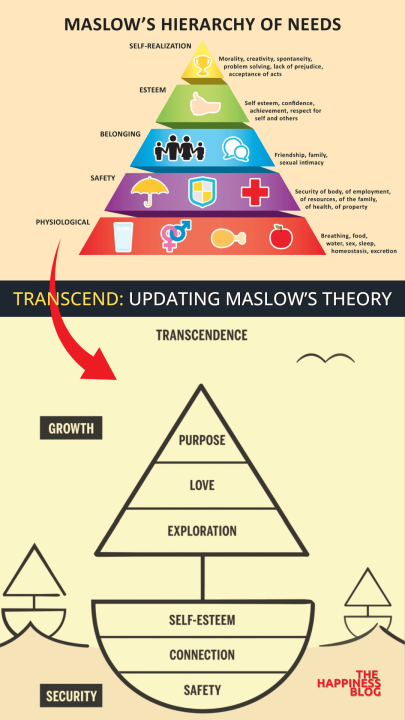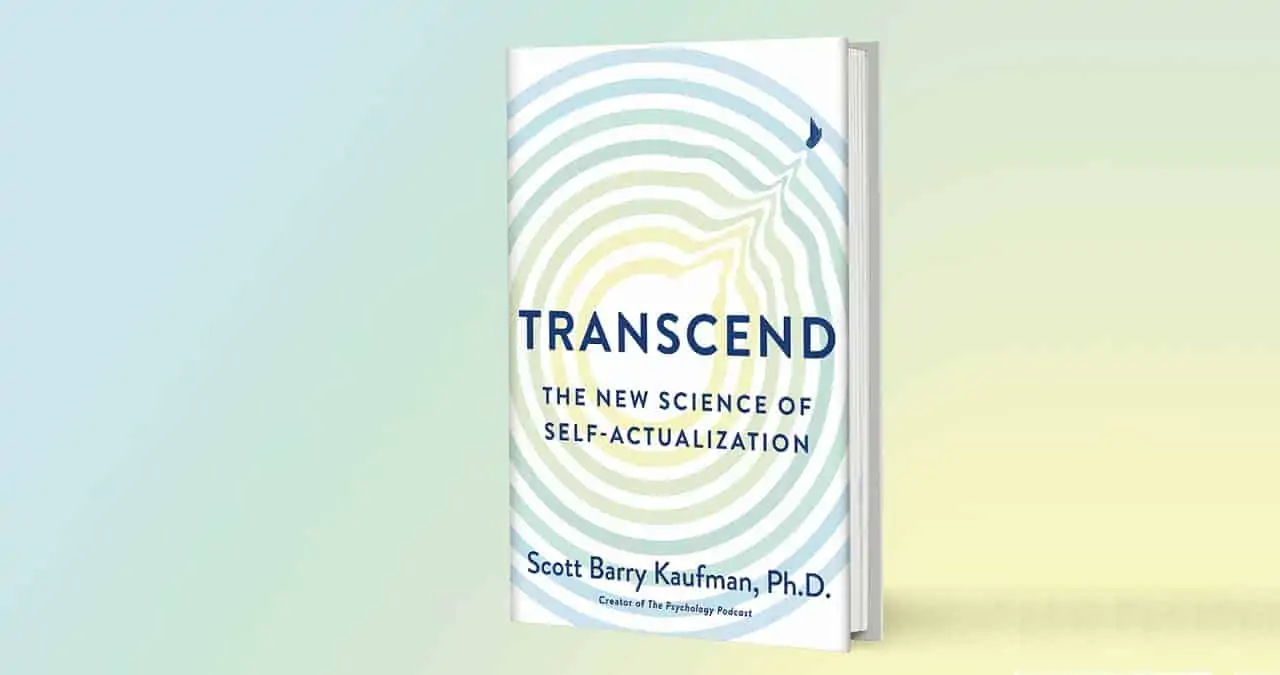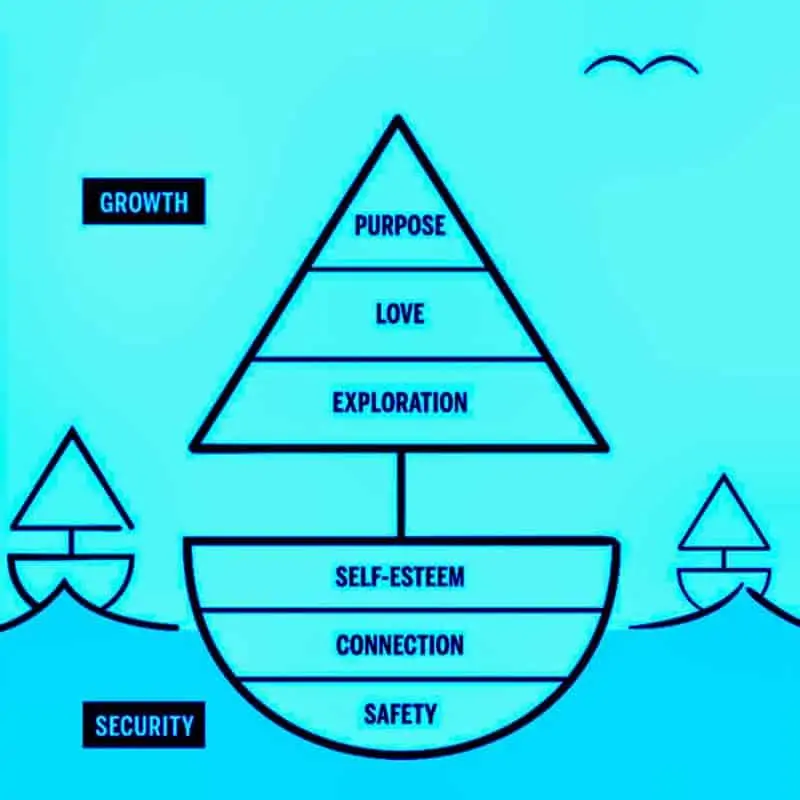Today's Friday • 5 mins read
Transcend: The New Science of Self-Actualization revives the legacy of Abraham Maslow, the pioneering psychologist behind humanistic psychology and the famous hierarchy of needs.
In his final years, Maslow was fiercely busy working on a new vision: bridging self-actualization and self-transcendence. But his work was cut short by his sudden death in 1970, leaving a blueprint for human potential forever incomplete.
Until now, that is.
Scott Barry Kaufman’s book, Transcend, picks up where Maslow left off, bringing us The New Science of Self-Actualization. It updates Maslow’s Hierarchy of Needs into a modern roadmap to achieve our highest human potential.
With meticulous care, Kaufman draws Maslow’s ideas through decades of cutting-edge psychology, neuroscience, and personal growth research.
The result? A satisfying completion of Maslow’s unfinished legacy. A bold new framework for what it truly means to thrive, love, belong, find meaning, and to achieve your highest human potential today.
Transcend, a tad boring at times, helps you chart a more purposeful, fulfilling life, supplying you with the tools to rise toward your fullest self.

Figure: A visual comparison of Maslow’s Hierarchy of Needs and Kaufman’s updated version. The original hierarchy is a pyramid, each level representing a different need, ranging from basic physiological needs (food, water) at the bottom to self-actualization at the top. The updated model is a sailboat, with the hull depicting security needs (safety, connection, self-esteem), the sail showing growth needs (exploration, love, purpose), and the flying bird above as transcendence. Overall, the sailboat illustrates a more dynamic and progressive view.
Sailboat of Self-Actualization
Transcend draws on Maslow’s theory about human needs and uses it as a sailboat metaphor. Kaufman takes us out on a voyage to self-actualization on that boat.
We learn how love, relationships, creativity, and meaning can become part of our lives, while sailing that boat, without much hard work. All of us could achieve those in our everyday lives, the book gently assures us.
We get many tips on how to rise above the ordinary and become the best possible version of ourselves, what Maslow called self-actualization.

Kaufman’s research indicates, as was theorized by Maslow, that people with self-actualization harbor these 10 characteristics:
Acceptance, authenticity, equanimity, purpose, peak experiences, creative spirit, humanitarianism, good moral intuition, efficient perception of reality, and continued freshness of appreciation.
Away from a pyramid, which is the way most of the world knows about Maslow’s Hierarchy of Needs, Kaufman introduces us to a sailboat metaphor. The fun part, Maslow himself never designed or suggested the idea of a pyramid; it was a marketing exercise.

In essence, Kaufman’s book is the operating manual for the sailboat.
In the hull of the boat, there is security, including safety, connection, and self-esteem, which Maslow called deficiency needs or D-needs. Without a secure hull that has absolutely no holes, the boat will eventually sink, no matter how much energy you spend on fixing it once it is in water.
The boat part of the sailboat helps us to survive.
Once the deficiency needs are met, and one feels secure, they can open the sails to what Maslow called being needs or B-needs — exploration, love, and purpose. When one has those in place, they can sail off on the grand journey of life.
The sail part of the sailboat helps us to thrive.
Kaufman found that high-scoring self-actualized people were much more inspired by growth, exploration, and love of humanity. To get your score, visit the Self-Actualization Test page.
A high self-actualization score indicates better well-being, like more life satisfaction, curiosity, self-acceptance, positive relationships, environmental mastery, autonomy, and purpose in life.
They also predict greater work satisfaction and work performance, better reports of talent, skill, and creative ability.
Now comes the part where Kaufman updates Maslow.
Maslow said self-actualization was extremely rare and virtually unattainable among young people.
Kaufman, in direct contrast, says self-actualization is a normal finding, not rare.
Moreover, he says it does not correlate with age, education, race, ethnicity, childhood income, or gender differences. Translated, it means almost any person on this earth can achieve self-actualization.
Healthy Transcendence
Above the sailboat hovers transcendence, a rising to the grandest states of well-being and consciousness after one has achieved self-actualization. These come as peak experiences.
We do not need to choose either self-actualization or self-transcendence, as both together are essential to a full and meaningful life.
“Healthy transcendence is not about being outside of the whole, or feeling superior to the whole, but being a harmonious part of the whole of human existence. It’s all of humanity. In a nutshell: healthy transcendence involves harnessing all that you are in the service of realizing the best version of yourself so you can help raise the bar for the whole of humanity.”
— Scott Barry Kaufman, Transcend
- Transcend: The New Science of Self-Actualization recently became the #1 Best Seller in Humanistic Psychology in the Audible Audiobook category on Amazon.
- Goodreads says, “In this groundbreaking book, Kaufman picks up where Maslow left off, unraveling the mysteries of his unfinished theory, and integrating these ideas with the latest research on attachment, connection, creativity, love, purpose and other building blocks of a life well-lived.”
The author of Transcend, Scott Barry Kaufman, is a humanistic psychologist who has taught intelligence, creativity, and well-being at UPenn, NYU, and CU. He has a Ph.D. in cognitive psychology from Yale, and an M.Phil in experimental psychology from Cambridge. He hosts “The Psychology Podcast.”
√ If you liked it, please spread the word.
» You deserve happiness! Choosing therapy could be your best decision.
...
• Disclosure: Buying via our links earns us a small commission.